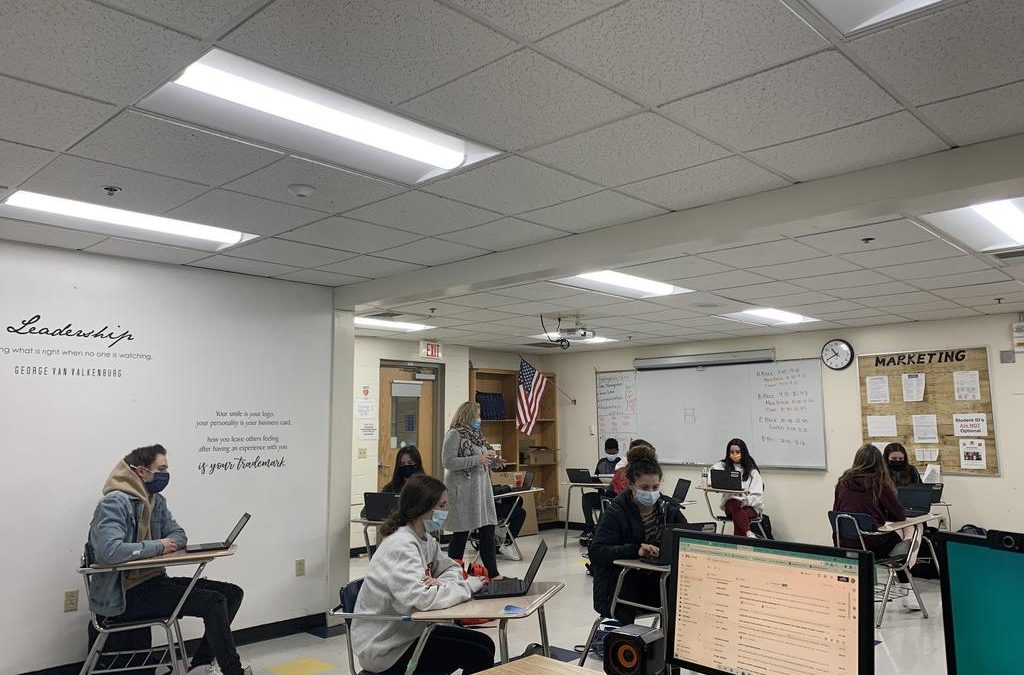
Mar 30, 2021 | Challenges and Opportunities, Impact
In response to the pandemic in 2020, many Career and Technical Education (CTE) centers in New Hampshire began to look at ways to integrate cutting edge technology into its programs.
“Investments in technology have enabled us to create interactive and virtual educational experiences for students,” noted Vaso Partinoudi, director of Career and Technical Education, Milford High School & Applied Technology Center.
She said the challenge to creatively engage students is heightened in CTE programs.
“Our whole focus is to provide experiential and technical training to high school students that prepares them for college and careers,” she said. “This type of learning is hands-on, which is difficult to achieve when you cannot physically get together.”
Emerging online educational learning platforms like Newsela, Pear Deck and Nearpod, however, have provided teachers with the ability to virtually engage students in new ways. Tammy Andrew, a computer science teacher at Milford High School who teaches several CTE classes, cited her use of Nearpod as one example.
“Nearpod enables me to make nearly any educational resource — PowerPoints, Google Slides, or any video — interactive,” she said. “Students can personally or anonymously respond to a video, for instance, and share responses. Students can respond to each other, too.”
In a computer programming class, Andrew said students can begin an assignment on a piece of paper or a Google document. If students are visual, they can use their cell phone or camera to submit an assignment. A digital timer, which can be turned off by the student, provides a countdown for those that require it.
“Students have a voice in how they learn,” said Andrew.
At the height of the pandemic, Kim Daniels, marketing educator at Milford High School & Applied Technology Center, said Nearpod helped teachers conduct synchronous lessons while all students were remote.
“Nearpod allows a teacher to cast a PowerPoint on the students device that the teacher controls,” she said. “It also allows for quick check-ins for understanding through a variety of activities that the students can engage in together as a class, even though they are at home learning alone.”
According to Andrew, the pandemic has accelerated the technology adoption rate by school districts.
“We are two to three years ahead of where we would be otherwise if it were not for COVID-19,” she noted. “We are pushing the abilities of Zoom, Canvas and Nearpod into the future because we need these things now.”
Such technologies, while enhancing CTE, cannot replace hands-on lessons and work-based learning.
“A computer is not a substitute for face to face learning,” Daniels said. “The opportunity to provide instant feedback and offer corrections while we watch students work is missing during remote work days.”
Jen Haskins, president of the New Hampshire Career and Technical Administrators Association, agreed and said all CTE centers statewide are “creatively working” to meet the need for experiential learning in the state.
“We continue to work with many stakeholders, including industry partners, to provide students with real-world learning opportunities like apprenticeships and internships,” she said. “With the aging of New Hampshire’s workforce and the ongoing pandemic, CTE is more important than ever.”
Milford High School & Applied Technology Center is one of 28 CTE centers throughout New Hampshire.
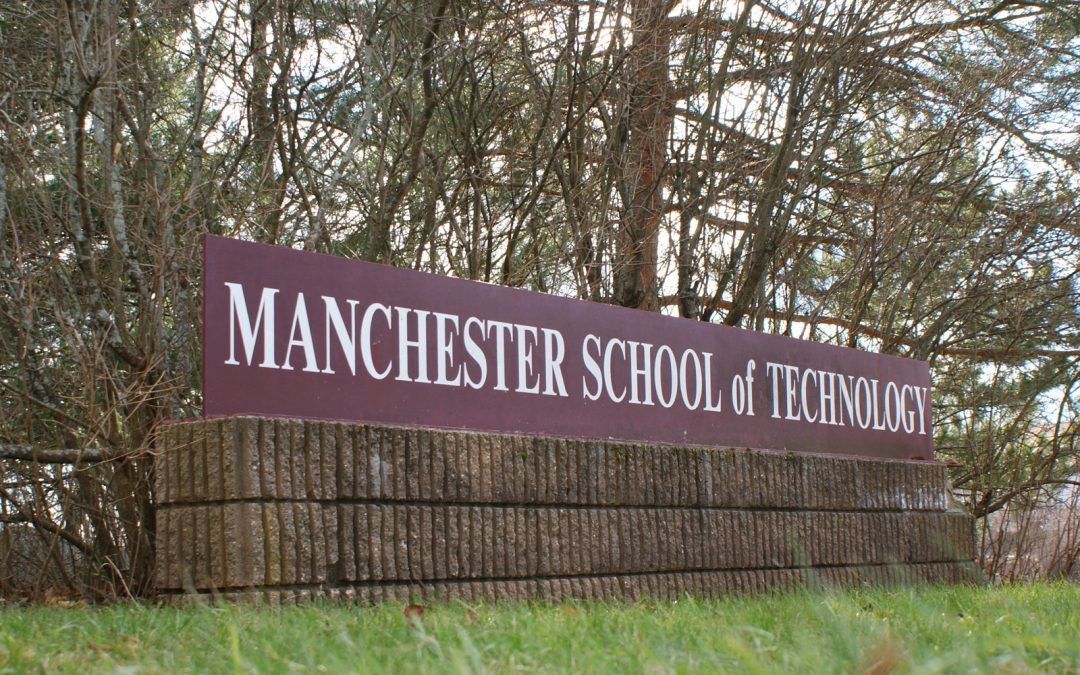
Jan 22, 2021 | Challenges and Opportunities, Impact, Leadership, Ticker
With programs ranging from culinary to marketing, biotechnology and more, Career and Technical Education (CTE) in New Hampshire provides high school students with opportunities to not only learn, but develop their knowledge in real-world settings.
“CTE is experiential career training,” explained Karen Hannigan Machado, principal of The Manchester School of Technology, one of more than two-dozen CTE centers across New Hampshire. “They train on the most up to date equipment and go out and learn in the field and job sites.”
This experiential aspect of CTE prepares high school students in measurable ways.
“They can go right into the job they prepared for in high school, or they will be further ahead in a certification or college program,” she added.
According to Jen Haskins, director of Career & Technical Education at Pinkerton Academy in Derry, CTE’s connection with — and alignment to — post-secondary education is often not understood by the general public.
“The biggest misconception people have is the level of rigor found in CTE classes statewide,” she said.
A majority of CTE classes also offer college credit and certifications in a variety of diverse industries.
“Many CTE students can graduate with six to 18 credits of college classes,” said Haskins, who also serves as president of the New Hampshire Career and Technical Administrators Association.
CTE programs are not, however, tied to specific jobs, but instead lead to “career pathways” that prepare students for a variety of different options.
“CTE puts students on trajectories that are far ahead of their peers in regards to hands-on skills and learning, all of which simulate an industry or career,” said Haskins. “CTE’s biggest value propositions include exploration, skill development, college credit and simulation-learning.”
In the Criminal Justice & Homeland Security program at Creteau Technology Center in Rochester, for example, these value propositions lead students through a deep exploration of the justice system in American society.
“They explore the question of crime causation from a number of theoretical perspectives and look at criminal law in the federal and state systems,” explained Michele Halligan-Foley, director of Career Technology Education.
In the program, students analyze essential elements of all major crimes, concepts of constitutional review and judicial scrutiny, and the principles that govern legal challenges to the constitutionality of laws.
“They also examine the causative factors in the development of youthful offenders and the development and philosophy behind treatment and rehabilitative practices,” she added.
The pandemic, however, threatens the viability of this and many CTE programs statewide, as directors navigate the logistical challenges related to providing “hands-on” learning in remote learning environments.
“It’s extremely challenging, especially for CTE students, who want the hands-on learning part,” said Vaso Partinoudi, director of Career and Technical Education, Applied Technology Center (ATC) at Milford High School.
Halligan-Foley agreed and said CTE centers statewide are losing students due to schedule changes brought about by the pandemic.
“It is going to take years to rebuild the numbers in CTE programs,” she said.
The potential impact goes well beyond education.
“The concern is how well-prepared our students will be when they try to get hired or go into training programs and college,” said Hannigan Machado. “It is very difficult to train people with only visuals.”
According to Haskins, CTE’s close connection(s) with industry partners may take on increased significance in the future.
“The relationships CTE programs have with industry is the backbone to students’ success,” she said. “These connections help guide us on curriculum development and real world applications, including opportunities like apprenticeships and internships. We will need to strengthen these relationships.”
Hannigan Machado added, “If we don’t, businesses will need to add more training on their side and won’t have career ready employees…If CTE struggles, the state’s economy struggles, too.”
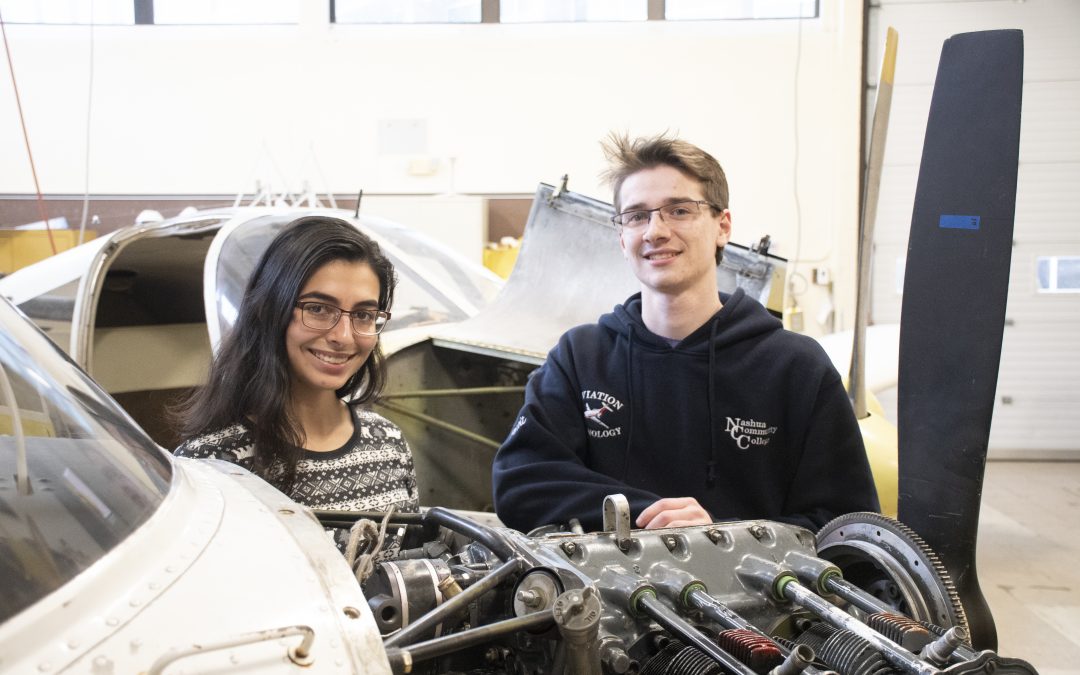
Feb 11, 2020 | Automotive, Impact, Manufacturing Technology/Technician, Programs, Value
On April 2 at Nashua Community College, high school juniors and seniors are invited to Industry & Transportation/Manufacturing Career Discovery Day, an opportunity to learn about their various transportation and manufacturing programs.
Transportation programs include Automotive Technology, Aviation Technology, Collision Repair Technology and Honda Automotive Technology, while manufacturing programs feature Precision Manufacturing, CNC and Mechanical Design Technology.
“We have invited many of our industry partners from both the transportation and manufacturing industries,” said Samantha Belcourt, CTE Coordinator of Continuing Education, Nashua Community College. “Many of our partners also serve on program advisory boards, which help inform curriculum and ensures that our graduates are career ready.”
These relationships, she said, are crucial.
“They keep our programs current and relevant to the needs of industry,” she added.
Belcourt said the event is not just geared toward students with experiences in these fields.
“Seniors at the high school level who have not had exposure to these type industries are under the misconception that they cannot pursue a degree in these fields,” she said. “These programs, however, welcome students with all backgrounds and experiences.”
According to Karl Wunderlich, Department Chair of Transportation, Nashua Community College, the event also underscores the educational value available with the Community College System of New Hampshire.
“Why spend $100,000.00 or more on a four year education and not be able to earn that back within 5 years?” he rhetorically noted. “Our 2-year degree, for example, costing about $25,000.00 including tools, can help a student earn higher wages and more job security. A graduate working in this industry for 5 years can earn $100,000 annually or more.”
He said job placement in these fields for graduates is nearly “instant.”
“The rate of new people coming into this field is not keeping pace with those reaching retirement age,” he added. “All types of jobs available.”
Belcourt agreed and said community college education relies on partnerships with both educational leaders and industry partners.
“We depend on our industry partners to help align our programs with industry standards,” she said. “We can not only set the right expectations for out students, but create career pathways.”
Any educator interested in bringing their students to campus for Career Discovery Day can RSVP to NCC Admissions Director Laura Tremblay at ltremblay@ccsnh.edu.

Feb 8, 2020 | Automotive, CTE Promotion, Impact, Value
Career and Technical Education is often at the forefront when it comes to experiential, hands-on education, which is demonstrated in a recently announced collaboration between Seacoast School of Technology (SST) and Volvo Car University.
Spearheaded by Dan Enxing of Volvo Cars Exeter, SST is one of six schools in the nation–and the only high school–to receive a new Volvo s60.
“The goal is to get students working on relevant cars with new technology so they will be better prepared for the work place,” said Enxing, member of the Exeter Area New Car Dealers Association.
He said Volvo Corporate is putting “a lot into this program.”
“They will watch to see what effect it has on the schools and quality of student that graduates and enter the workforce,” he said.
Noting he advocated for SST to receive a pre-production car upon learning about the program, Enxing said he will donate all of the special tools the students will need to work on it.
“This program is where my future technicians will come from,” he explained. “If we can help get them working on cars with modern technology, it will benefit the students and dealers…There is a shortage of new technicians, and I see this [program] as one way to help students get excited about becoming a technician.”
According to SST Principal Sharon Wilson, this kind of collaboration with industry partners represents “the heart and soul of CTE.”
“It takes great learning opportunities and gives them a weight that can only be achieved by making it ‘real,’” she said.
This reality, she said, could could refer to earning college credits, obtaining industry certifications, or gaining work-based experience.
“We serve six different sending schools and are fortunate to be part of a local community that embraces our school and our mission,” she said.
Regarding the impact she envisions this collaboration will have for Automotive students at SST, it has for student learning
Noting the degree of sophistication for automotive repairs has increased exponentially, Wilson said this opportunity will help their students “be truly competitive and marketable.”
“We need to give them the most rich and diverse opportunities to hone their skills and challenge them,” she said. “This donation of a pre-production vehicle will open up new pathways for our students, making them more competitive candidates in regards to employability.”
In reflecting on the importance of CTE itself, Wilson said it is important the general public understand its role in today’s economic landscape.
“CTE programs allow students to earn credits while in high school at a significant financial savings while allowing them to better commit to a major down the road,” she said.
11 out of 12 SST programs have dual enrollment opportunities.
Last year, SST students earned 1,667 college credits while enrolled here,” she said. “The financial savings available to students from this is a game changer.”
Wilson said students in CTE are also more likely to graduate from high school.
“Nationwide, they have a 93% graduation rate, which is 13% higher than those who do not take CTE programs,” she said. “91% of students who take 2 to 3 courses in a CTE program also go on to enroll in college…These are important stats and paint a different picture than I think people generally have of CTE.”
To learn more about the SST, or its collaboration with Volvo, visit seacoasttech.com.
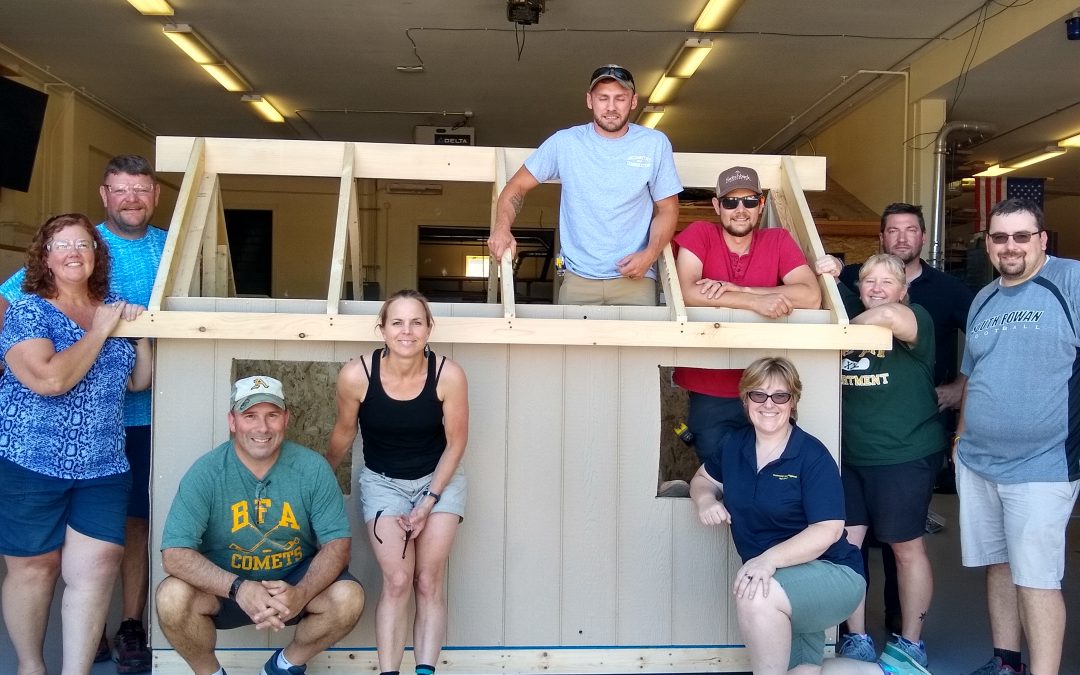
Jan 17, 2020 | Impact, Leadership
In June, Region 14 Applied Technology Center (ATC) and Conval High School in Peterborough will host AMPED on Algebra, a workshop for teachers that underscores an important concept behind Career and Technical Education (CTE) itself.
“It is important that CTE instructors demonstrate to students that the competencies we are teaching represent the knowledge and skills they will need to be successful in their careers and college,” said Region 14 ATC Director Jen Kiley.
In speaking about the upcoming AMPED on Algebra workshop, Kiley said it is important that CTE programs formally include core academics.
“We help make clear to students that they will need those math and ELA skills to be successful as well,” she added.
For Kiley, her interest in AMPED on Algebra is matched by another program, Geometry in Construction, both of which are designed by Contextual Learning.
“Both programs present mathematical concepts in a hands-on way that is connected to high interest career paths for students,” she explained. “They recognize the fact that students learn math and English skills as part of many career and technical education programs.”
She said the curriculum in both programs make it clear that CTE and academic competencies are addressed at the same time.
“I personally attended the June 2019 Geometry in Construction workshop in St. Albans, VT last year and was blown away by how much I learned as an adult,” she said . “It was especially interesting, because I identify as someone who is not great at math or building.”
Kiley said she has no doubt that students will find the same success as she did.
“Many high schools are dealing with issues regarding pass/fail rates in traditional academics, and this could be a way to help address those concerns,” she added.
In looking across Region 14 ATC as a whole, Kiley said different CTE instructors already include cross-curricular lessons and units in their programs. June’s workshop, she explained, would extend what their teachers are already doing.
“By allowing students to access disciplines they may find challenging through the CTE programs where they’ve already found success or feel comfortable, we are providing more opportunities for positive student outcomes,” she said.
As far as Kiley is concerned, the importance of AMPED on Algebra and similarly designed educational programs cannot be overemphasized.
“Very few people have careers solely in math or English, but all careers include elements from these two disciplines,” she said. “By ‘crosswalking’ academics with CTE, we are answering the ever-present student questions of ‘Why do I need to know this? and ‘When will I need this in my life?’”
The “beauty of CTE,” she went on to add, is students are not left asking these questions because “it’s completely transparent what they are learning and why.”
“Students need math and ELA skills to be career ready too, and this AMPED on Algebra is one tangible opportunity to show them why,”
To learn more about AMPED on Alegbra,or sign up for the workshop, which takes place June 22 to June 25 at Conval High School, click https://contextuallc.com/amped/new-hampshire.
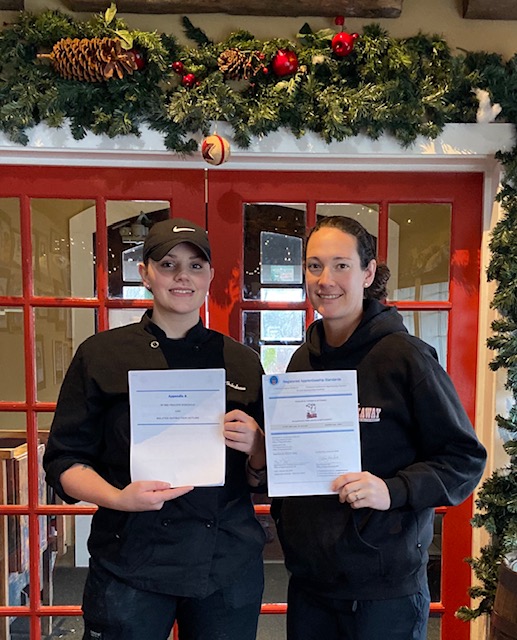
Nov 22, 2019 | Impact, Students
For young people looking to get their foot through the proverbial door of the culinary industry, there may be no better opportunity than the Cook Apprenticeship Program at Tuckaway Tavern and Butchery in Raymond.
“We have tailored this program to coincide with the training for our cook position,” explained Tuckaway Tavern’s Assistant Executive Chef Jen Hiller.
Standards in the program, she continued, were made to train apprentices to work on different preparation and cooking techniques as well as equipment safety and knowledge of various cooking vessels, minor management of staff and health code laws.
“We train these individuals for 6,000 hours over the course of 3 years with on the job training as well as relevant schooling,” she added.
As for whom is targeted by the program, Hiller said it is particularly beneficial for those in high school or freshly graduated individuals looking to enhance and further their respective culinary interests.
“With completion of this program, we would ideally hire right away given the path the apprentice chooses,” she said. “Our program coincides with our business so hiring these individuals after would be a definite plus for us.”
Regrading the rationale behind the program, Hiller said they developed it as a support system for those considering culinary as a future career.
“This program opens up the initial world of cooking to those interested and provides support in the form of mentors,” she said. “We want to give young people the most attentive training possible with attention to detail throughout the entire process.”
The program, Hiller noted, makes business sense from an employer’s perspective.
“It is beneficial for us as employers to be able to train someone for the exact position that fits our company and the goals we have as a whole,” she said.
Developed and implemented within the past year, the program currently employs one apprentice.
“She is eager to learn the process and details needed to become a cook and all the branches we offer here with that position,” said Hiller. “This is a great stepping stone for her to fine tune what road she would like to take at the Tuckaway come the end of this program with us.”
Hiller also cited the program helps to meet civic responsibilities.
“As a business, it is also great knowing that she has proper training preparing her for whatever path she chooses,” she said.
In looking to the future, Hiller said it is their hope to take on another apprentice within the next year.
“We are in the works of developing a manager training program and excited to start that process, too.”
To learn more about Tuckaway Tavern and Butchery, visit https://www.thetuckaway.com.






